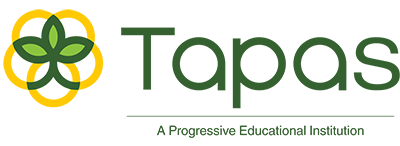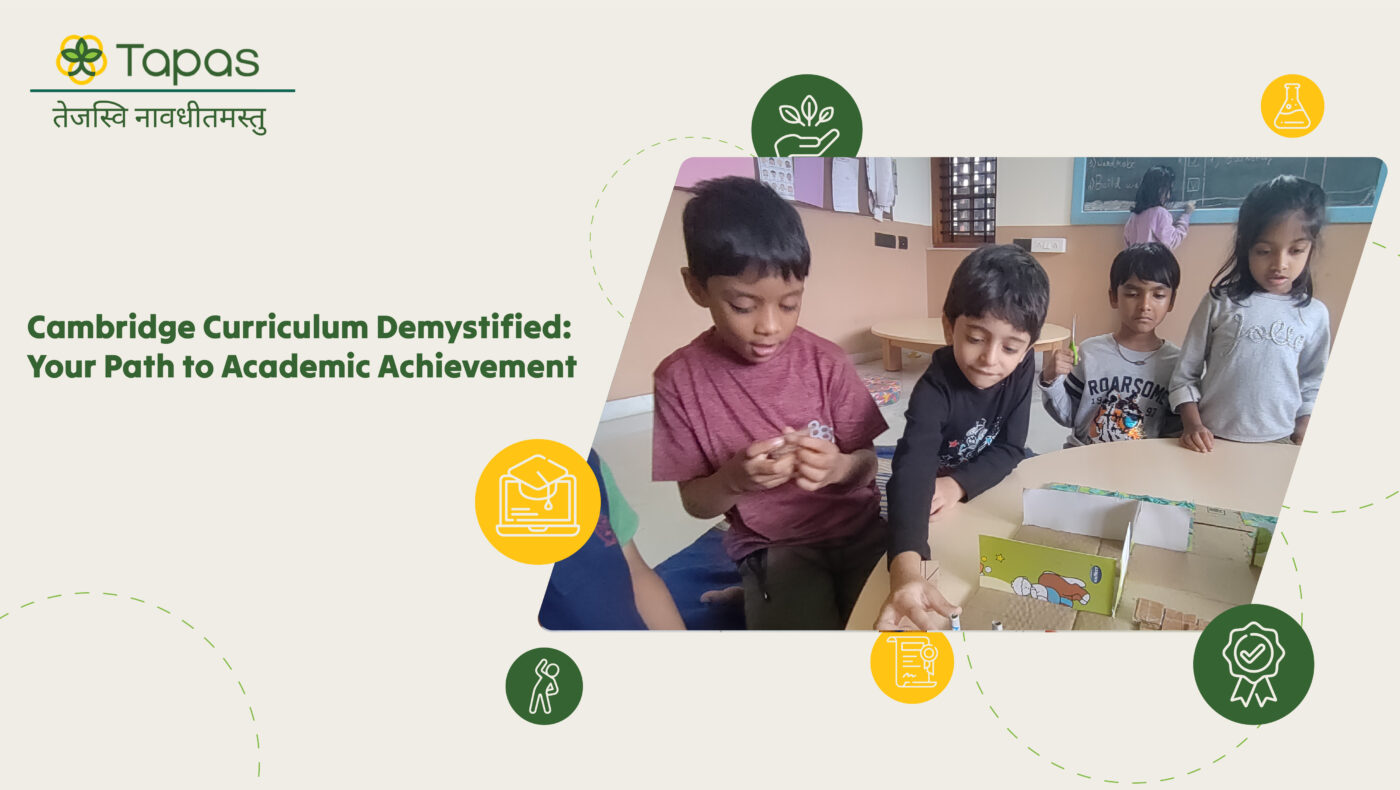Embarking on the journey of Navigating the Cambridge Curriculum involves understanding its foundational principles and widespread international acclaim. Rooted in a commitment to holistic education, the Cambridge Curriculum emphasizes critical thinking, problem-solving, and a comprehensive learning experience. Its philosophy centers on nurturing well-rounded individuals, fostering a love for learning, and preparing students for success in an ever-evolving world.
The international recognition of the Cambridge Curriculum is a testament to its effectiveness. Adopted by a myriad of educational institutions globally, it has become a hallmark of academic excellence. With its emphasis on rigorous standards, flexibility, and practical application, the curriculum has earned trust and accreditation from universities and employers worldwide. As we delve into the principles and global recognition, it becomes evident that navigating the Cambridge Curriculum opens doors to a world of educational opportunities and paves the way for academic achievement on a global scale.
Value of a Cambridge Education: Understanding the Curriculum’s Structure
The Value of a Cambridge Education lies in its meticulously structured curriculum, spanning from primary to secondary levels and beyond. At the foundational stage, the curriculum begins with the Primary Checkpoint, ensuring a strong academic base. Secondary 1 builds upon this foundation, introducing a more specialized and in-depth approach to subjects.
The pinnacle of the Cambridge journey is marked by the International General Certificate of Secondary Education (IGCSE), a globally recognized qualification. This stage focuses on a broad yet balanced curriculum, fostering critical thinking and skill development. A testament to academic rigor, the Advanced Level (A Levels) follows, providing students the opportunity for specialized study in chosen subjects, preparing them comprehensively for higher education.
In understanding the structured progression through Primary Checkpoint, Secondary 1, IGCSE, and A Levels, one recognizes the Value of a Cambridge Education — a journey that not only imparts knowledge but cultivates skills crucial for lifelong success.
Comprehensive Guide: Global Acceptance of Cambridge Qualifications

In the Comprehensive Guide to Cambridge Qualifications, one key aspect that shines through is the worldwide acceptance and accreditation of these certifications. Cambridge qualifications have earned a prestigious reputation, acknowledged by educational institutions and employers globally. Their alignment with international educational standards ensures that students receive a comprehensive and universally recognized education.
Moreover, Cambridge certifications act as a golden key, unlocking doors to top universities worldwide. The robust academic foundation and critical thinking skills instilled by the curriculum make graduates highly sought-after by esteemed educational institutions. Whether pursuing undergraduate or postgraduate studies, the global acceptance of Cambridge qualifications positions students for success, enabling them to thrive in diverse academic landscapes. As we navigate the Comprehensive Guide, it becomes evident that Cambridge certifications not only enrich individual learning journeys but also provide a passport to educational excellence on a global stage.
Navigating the Cambridge Curriculum: Holistic Learning for Critical Thinkers
As we embark on the journey of Navigating the Cambridge Curriculum, the emphasis on a holistic learning approach becomes a guiding principle. This curriculum is designed to transcend rote memorization, placing a paramount focus on fostering critical thinking and problem-solving skills. Rather than mere absorption of information, students are encouraged to analyze, evaluate, and synthesize knowledge, nurturing a mindset that extends beyond exams.
The Cambridge Curriculum’s holistic learning philosophy ensures a well-rounded education. Subjects are interconnected, promoting interdisciplinary understanding, and extracurricular activities complement academic pursuits. The curriculum’s emphasis on practical application and real-world scenarios equips students with skills applicable in diverse contexts. By delving into the holistic learning approach, it’s evident that Navigating the Cambridge Curriculum is not just about academic achievement but about cultivating individuals who can navigate the complexities of the world with analytical prowess and a comprehensive understanding of their surroundings.
Value of a Cambridge Education: Demystifying Assessment in the Cambridge Curriculum
Central to the Value of a Cambridge Education is an understanding of the examination and assessment methods embedded in the Cambridge Curriculum. The curriculum demystifies traditional assessments by placing a strong emphasis on continuous evaluation. Rather than relying solely on high-stakes exams, students undergo a process of ongoing assessment, providing a more nuanced and comprehensive evaluation of their progress.
Furthermore, the Cambridge Curriculum places a premium on practical application. Assessments are designed not only to measure theoretical knowledge but also to evaluate a student’s ability to apply that knowledge in real-world scenarios. This dual emphasis on continuous assessment and practical application ensures that graduates not only excel academically but also possess the critical skills needed for success in a dynamic and ever-evolving global landscape. In essence, the Value of a Cambridge Education lies in its commitment to a holistic and forward-thinking approach to assessment.
Comprehensive Guide: Diverse Subjects and Flexible Choices in the Cambridge Curriculum
Within the Comprehensive Guide to the Cambridge Curriculum lies a testament to its inclusivity — a diverse array of subjects catering to a spectrum of interests. The curriculum acknowledges that learners are unique, and their academic journey should reflect their individual passions and aspirations.
Students navigating the Cambridge Curriculum are granted unparalleled flexibility in choosing subjects. This flexibility is not just a logistical convenience; it’s a deliberate strategy to empower students. They have the autonomy to align their academic path with their strengths and aspirations. Whether inclined towards sciences, humanities, or the arts, the curriculum ensures that students can construct a personalized learning experience. This approach not only fosters a deep engagement with chosen subjects but also prepares students for a future where diverse skill sets are highly valued. In essence, the Cambridge Curriculum, as depicted in this Comprehensive Guide, is a beacon of educational inclusivity, recognizing and nurturing the multifaceted talents of every learner.
Navigating the Cambridge Curriculum: Support and Development for Educators
In the intricate journey of Navigating the Cambridge Curriculum, educators find a robust support system and an array of resources tailored to enhance the teaching experience. The Cambridge Curriculum understands that educators play a pivotal role in shaping the learning environment and, as such, provides comprehensive support to ensure their success.
Educators implementing the Cambridge Curriculum have access to a wealth of resources, from curriculum guides to assessment materials. Continuous professional development opportunities are a cornerstone, offering tailored training to keep educators abreast of the latest pedagogical practices. Workshops, webinars, and collaborative forums foster a dynamic community where educators can share insights and best practices.
Emphasizing the importance of training and professional development, the Cambridge Curriculum ensures that educators are well-equipped to deliver an enriched learning experience. By investing in the growth of educators, the curriculum not only enhances teaching quality but also elevates the overall educational journey for students navigating the Cambridge experience.
Value of a Cambridge Education: Illuminating Success Stories
The Value of a Cambridge Education is vividly illustrated through the remarkable success stories of individuals who have excelled post their Cambridge Curriculum journey. These alumni stand as beacons of the curriculum’s transformative impact, showcasing not just academic prowess but a holistic preparation for life.
Notable Cambridge alumni have left an indelible mark in diverse fields. From pioneering research in science to leadership roles in global corporations, the curriculum has nurtured minds that shape the world. These individuals attribute their success to the critical thinking skills, interdisciplinary knowledge, and adaptability instilled by the Cambridge Curriculum.
As we delve into the Value of a Cambridge Education, the triumphs of its alumni echo, underscoring that the curriculum is not merely a path to academic achievement but a catalyst for shaping influential, forward-thinking leaders across various spheres.
Comprehensive Guide: Cambridge Curriculum and Modern Educational Trends
Within the Comprehensive Guide to the Cambridge Curriculum, a spotlight is cast on its seamless alignment with modern educational trends and technological advancements. Recognizing the evolving landscape of education, the curriculum integrates technology as a catalyst for enhanced learning experiences.
Innovative teaching methods within the Cambridge Curriculum harness the power of technology, fostering interactive and engaging lessons. Virtual classrooms, online resources, and collaborative platforms are seamlessly integrated, enabling a dynamic and accessible learning environment. This integration not only prepares students for the digital age but also enriches their educational journey.
As we navigate the Comprehensive Guide, it becomes evident that the Cambridge Curriculum is not just adaptive to modern trends but actively pioneers them. By embracing technology, it empowers educators to deliver content in innovative ways, ensuring that students are not just recipients of knowledge but active participants in a technologically infused and forward-thinking educational experience.
Value of a Cambridge Education: A Bridge to Higher Education Success

The Value of a Cambridge Education extends beyond academic achievement to the strategic preparation of students for success in higher education. The Cambridge Curriculum serves as a robust bridge, ensuring a seamless transition from its qualifications to the challenges of university-level studies.
Cambridge qualifications are internationally recognized, offering students a passport to esteemed universities globally. The curriculum’s emphasis on critical thinking, practical application, and a diverse subject range equips students with the skills demanded in higher education settings. Students are not only academically adept but possess the analytical prowess to navigate complex subjects.
Navigating the transition from Cambridge to university-level studies becomes a natural progression, where students find themselves well-prepared for the rigorous demands of higher education. The Value of a Cambridge Education shines through as it not only imparts knowledge but instills the resilience and adaptability required for continuous success in the academic journey beyond.
Addressing Common Myths
| MYTH/MISCONCEPTION | CLARIFICATION & BENEFITS |
| Myth: Cambridge is too academically rigid. | Clarification: While Cambridge maintains high academic standards, it emphasizes a holistic approach to education. It fosters critical thinking, problem-solving, and practical application, promoting a well-rounded skill set. Benefits: Students develop versatile skills, preparing them for diverse challenges in higher education and the professional world. |
| Myth: Only for exceptionally gifted students. | Clarification: The Cambridge Curriculum caters to a spectrum of abilities. It’s designed to challenge and support students at various academic levels, ensuring an inclusive education. Benefits: Students progress at their own pace, fostering a growth mindset. It accommodates diverse learning styles, allowing everyone to thrive. |
| Myth: Limited subject choices. | Clarification: Cambridge offers a wide range of subjects, from sciences to humanities and the arts. It provides flexibility for students to choose subjects aligned with their interests and career goals. Benefits: Students tailor their education, creating a personalized learning experience that aligns with their passions and aspirations. |
| Myth: The curriculum is too Euro-centric. | Clarification: The curriculum has a global perspective, incorporating a diverse range of authors, historical events, and cultural contexts. It aims to provide a comprehensive worldview. Benefits: Students gain a broad understanding of global issues, promoting cultural awareness and a more inclusive outlook, preparing them for a connected world. |
| Myth: Limited emphasis on practical skills. | Clarification: Practical application is integral to the curriculum. It emphasizes not just theoretical knowledge but its real-world application, nurturing skills relevant to future careers. Benefits: Students graduate with practical skills, ensuring they are not only academically proficient but also equipped to excel in professional settings. |
| Myth: Strictly exam-oriented. | Clarification: While exams are a component, the curriculum focuses on continuous assessment, including coursework and practical evaluations. It seeks to evaluate a student’s overall understanding and application of knowledge. Benefits: Students develop a deeper understanding of subjects, reducing reliance on rote memorization and preparing them for a variety of assessment methods in higher education and beyond. |
Addressing these myths and clarifying the benefits reinforces the diverse and inclusive nature of the Cambridge Curriculum, dispelling misconceptions and highlighting its adaptability and relevance to a broad spectrum of students.
Practical Tips for Navigating the Cambridge Curriculum
- Create a Structured Study Plan:
- Develop a detailed study plan that allocates time for each subject.
- Prioritize tasks based on deadlines and difficulty levels.
- Utilize Resources Effectively:
- Make the most of Cambridge-approved textbooks, online resources, and past papers.
- Engage with additional materials to deepen your understanding.
- Active Note-Taking:
- Practice active note-taking during lectures and while reading textbooks.
- Summarize information in your own words to reinforce understanding.
- Collaborate with Peers:
- Form study groups to discuss complex topics and share insights.
- Teach concepts to classmates; it enhances your own understanding.
- Practice Time Management:
- Break down tasks into smaller, manageable chunks.
- Use time-management tools like calendars and apps to stay organized.
- Regular Self-Assessment:
- Regularly assess your understanding through self-quizzes or mock exams.
- Identify weak areas and focus on reinforcing those concepts.
- Seek Guidance:
- Don’t hesitate to ask teachers or peers for clarification.
- Attend extra help sessions or reach out for one-on-one support when needed.
- Healthy Work-Life Balance:
- Ensure a balance between study and relaxation.
- Incorporate breaks into long study sessions to stay refreshed and focused.
- Utilize Exam Techniques:
- Practice past papers under timed conditions to simulate exam settings.
- Learn effective exam techniques, such as time allocation and question prioritization.
- Stay Informed:
- Keep updated on curriculum changes and exam patterns.
- Attend orientation sessions or workshops provided by the school.
Remember, navigating the Cambridge Curriculum is not just about memorizing facts; it’s about understanding concepts deeply and applying knowledge. Adopting effective study strategies and maintaining a healthy balance will contribute significantly to your academic success.
Comprehensive Guide: Parental Support in the Cambridge Curriculum Journey
In the Comprehensive Guide to the Cambridge Curriculum, the crucial role of parents as partners in their child’s academic journey becomes evident. Parents play a pivotal role in supporting students through the curriculum, contributing to their holistic development.
- Create a Supportive Environment:
-
-
- Establish a conducive study space at home with minimal distractions.
- Encourage a positive attitude towards learning and celebrate achievements.
-
- Stay Informed and Involved:
-
-
- Familiarize yourself with the curriculum structure and subjects.
- Attend parent-teacher meetings to stay informed about your child’s progress.
-
- Encourage Critical Thinking:
-
-
- Foster an environment where questioning and curiosity are encouraged.
- Engage in discussions about real-world applications of what they’re learning.
-
- Balance and Well-being:
-
-
- Support a balanced lifestyle, emphasizing the importance of breaks and relaxation.
- Encourage extracurricular activities for a holistic development approach.
-
- Communicate Openly:
-
-
- Maintain open communication with your child about their challenges and successes.
- Offer guidance and support when they face academic or personal difficulties.
-
- Facilitate Resources:
-
-
- Provide access to relevant learning resources, books, and educational materials.
- Support technological needs, ensuring a seamless integration of online resources.
-
- Participate in Collaborative Learning:
-
- Engage in discussions about their coursework to reinforce understanding.
- Collaborate with teachers and other parents to create a supportive community.
Parental involvement in the Cambridge Curriculum extends beyond assisting with homework; it involves creating a supportive ecosystem that nurtures the development of critical skills and a lifelong love for learning. This partnership enhances the educational journey for the student, fostering success both academically and personally.
Value of a Cambridge Education: Excelling in Cambridge Assessments
Effective exam preparation is a cornerstone of excelling in Cambridge assessments, underscoring the Value of a Cambridge Education. Embrace a strategic approach with these guidance tips:
- Consistent Revision:
-
-
- Regularly revisit class notes and key concepts throughout the academic year.
- Break down revision into manageable sessions to avoid cramming.
-
- Practice Past Papers:
-
-
- Familiarize yourself with the exam format and question styles.
- Practice under timed conditions to improve time management.
-
- Understand Marking Schemes:
-
-
- Analyze marking schemes to comprehend how answers are evaluated.
- Tailor your responses to align with the expectations of examiners.
-
- Utilize Additional Resources:
-
-
- Explore supplementary materials and textbooks to deepen understanding.
- Seek clarification from teachers or peers on challenging topics.
-
- Active Learning Techniques:
-
-
- Engage in active learning methods like flashcards, mind maps, and group discussions.
- Teach concepts to someone else to reinforce your understanding.
-
- Set Realistic Goals:
-
-
- Establish achievable study goals for each revision session.
- Celebrate milestones to stay motivated throughout the preparation process.
-
- Seek Feedback:
-
- Request feedback on practice exams or assignments.
- Use constructive criticism to refine your approach and address weaknesses.
The Value of a Cambridge Education is amplified when students embrace consistent revision and practice. This approach not only enhances exam performance but also cultivates a deeper understanding of subjects, aligning with the curriculum’s emphasis on holistic education and lifelong learning.
Unlocking Career Opportunities with a Cambridge Education
A Cambridge education opens doors to a myriad of career opportunities, and the advantages it bestows resonate in the professional world. Cambridge qualifications are globally recognized and highly valued by employers for several reasons.
International Recognition:
-
-
- Cambridge qualifications are a symbol of academic excellence globally, providing an edge in the competitive job market.
-
Holistic Skill Development:
-
-
- The curriculum’s emphasis on critical thinking, problem-solving, and practical application cultivates well-rounded individuals sought after by employers.
-
Versatility Across Industries:
-
-
- Cambridge qualifications are not confined to specific sectors, offering versatility and adaptability across a spectrum of industries.
-
Preparation for Higher Education:
-
-
- Graduates with Cambridge qualifications are well-prepared for higher education, positioning them for advanced roles and specialized career paths.
-
Global Networking:
-
- Cambridge alumni benefit from a vast international network, facilitating
- Employers value the rigorous academic standards of Cambridge qualifications, reflecting a candidate’s commitment to excellence.
In essence, a Cambridge education is a strategic investment that not only enhances academic achievements but also propels individuals toward fulfilling and successful professional trajectories on a global scale.
Conclusion.
Unlock Academic Excellence with the Cambridge Curriculum: Discover the unparalleled benefits of the Cambridge Curriculum, epitomizing the ‘Value of a Cambridge Education.’ Navigating this educational journey is a transformative experience outlined in our ‘Comprehensive Guide.’
Key Features:
- Holistic Learning Approach: Fosters critical thinking and problem-solving skills.
- Global Recognition: Cambridge qualifications open doors to top universities and diverse career opportunities.
- Versatile Subject Range: Tailor your education to your passions and aspirations.
- Innovative Teaching Methods: Embrace technology for interactive and engaging learning experiences.
Call to Action:
Embark on a journey that transcends traditional education. Explore the ‘Value of a Cambridge Education’ by navigating our ‘Comprehensive Guide.’ Envision academic excellence and a future without boundaries. For further exploration and enrollment in Cambridge-affiliated institutions, visit https://tapaseducation.com/ Seize the opportunity for a globally recognized education that propels you toward success. Embrace the Cambridge path today!

